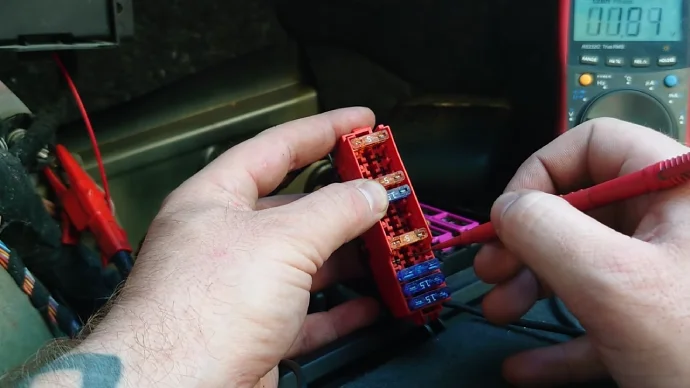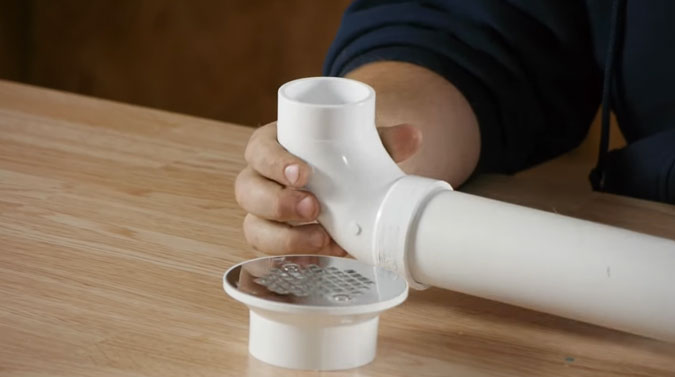Last Updated on May 24, 2023
If you find that your bilge pump in your home’s basement sump pit keeps blowing fuses, it can be annoying and concerning. There are several reasons why this may be happening.
One of the reasons could be overloading. If the pump tries to expel too much water, more than its capacity, it can cause the electrical system to overload, leading to blown fuses.
Incorrect wiring is another common issue that can blow your bilge pump fuses. If the wiring is loose or the insulation is damaged, it can cause the pump to short-circuit.
Overheating is another issue that can cause fuses to blow. If the pump motor gets too hot, it can overheat, causing the fuses to blow.
Filth in the pump can also cause the pump to overload, which can blow the fuse. A faulty float switch is another common problem experienced by homeowners.
Also, faulty or incorrect fuses can cause your bilge pump to blow fuses. We will explore each of these potential causes and what you can do to resolve the issue.
Uncovering the Mystery of Blown Bilge Pump Fuses

There can be several reasons why a bilge pump keeps blowing fuses. The following are some of the possible causes:
1. Overloading
Overloading occurs when the bilge pump draws more current than the fuse is rated for. This can happen when there is a sudden increase in the amount of water in the sump pit, causing the pump to work harder and draw more current.
Another possible cause of overloading is a malfunctioning pump that is not working as efficiently as it should be.
In both cases, the fuse can blow, and the pump will stop working. The fuse must be rated appropriately for the bilge pump’s current draw to prevent overloading.
2. Incorrect Wiring
Incorrect wiring is among the most common reasons for blown fuses in bilge pumps. This can happen when the wiring gets wet from water in the pit or other sources.
The exposed wiring can contact other metallic surfaces in such cases, causing a short circuit. Another possible reason for incorrect wiring is faulty installation, where cables are not adequately secured or hooked up to the battery incorrectly.
Following the manufacturer’s guidelines when installing a bilge pump is crucial, especially regarding wiring.
3. Overheating
Overheating of the bilge pump can cause it to draw more current than the fuse can handle, resulting in a blown fuse. This can happen when the pump is not adequately submerged in the water, causing it to work harder to pump the water out.
Another possible culprit is a clogged or dirty pump, which can cause the motor to overheat and draw more current. It is essential to regularly check the bilge pump’s cleanliness and ensure it is properly submerged in water, especially during periods of heavy rain.
4. Faulty Float Switch
A faulty float switch is also a common issue that causes bilge pump fuses to blow. When the float switch malfunctions, the pump will run continuously, overloading the system and blowing the fuse. This can occur as a result of mechanical or electrical issues.
Some mechanical issues that can cause float switch problems include physical damage or debris buildup interfering with the switch’s functionality. On the other hand, electrical issues may result from a faulty or damaged switch connection or a broken wire.
5. A Faulty or Incorrect Fuse
Another issue that can cause bilge pump fuses to blow is a faulty or incorrect fuse. When a fuse cannot handle the current drawn by the bilge pump, it can blow out, causing the pump to stop working.
This can be caused by using the wrong kind of fuse or simply using a fuse that is too small for the pump’s power needs.
What Should You Do To Prevent Your Bilge Pump From Blowing Fuses?

Don’t risk having your bilge pump cause some drama. Take these precautionary steps for smooth operation. Your home’s basement needs you to keep it safe, so make sure that pesky fuse doesn’t get blown by following a few easy suggestions.
1. Check the Fuse Rating
To prevent your home basement bilge pump from blowing fuses, it is crucial to ensure that the fuse is rated correctly for the pump. The first step is to check the manufacturer’s specifications for the correct fuse rating.
If the pump draws more current than what the fuse is rated for, it can cause the fuse to fail, resulting in the pump not working. Therefore, checking the fuse rating and replacing it if necessary is essential.
2. Check the Wiring
The wiring of the bilge pump needs to be correctly connected without any loose connections, damaged wires, or short circuits. The wiring must be inspected regularly and the correct connections must be verified to prevent pump malfunction.
If any damaged wiring is observed, it is crucial to repair or replace it immediately. Loose connections can result in overheating, and short circuits can cause electrical damage to the pump.
Regular maintenance will ensure the wiring is functioning correctly and prevent any problems from occurring.
3. Check the Float Switch
The bilge pump float switch is an essential component of the pump mechanism. Generally, a float switch turns the pump on when the water rises and turns it off when the water level decreases.
So, ensuring the float switch is functioning appropriately is critical. To examine the float switch, lift it using a test wire to check if it activates it.
Also, ensure no debris is present that could prevent the switch from functioning. Comfortably testing the float switch regularly will ensure it is functioning correctly and the pump will turn on automatically when the water level increases.
4. Keep the Bilge Pump Clean
A clean bilge pump is crucial for its smooth functioning and longevity. Debris or obstructions can cause the pump to become stagnant and lead to overheating or overload, resulting in possible damage.
If the bilge pump begins to function slowly or stops working, it could be due to built-up debris. Therefore, performing regular checks and clearing any obstructions or debris that may have accumulated is essential.
Proper maintenance, including cleaning the bilge pump and impeller, will prevent any potential problems that could cause the blowing of the fuse and pump to stop functioning.
What size fuse is ideal for a bilge pump?

A bilge pump’s fuse size should be determined by its electrical requirements. This information is typically indicated on the pump’s label or specified by the manufacturer.
The maximum amperage that the pump can draw is listed as the pump’s “amp draw” or “current draw” in the specifications. Generally, fuse sizes ranging from 2.1 amps to 20 amps are suitable for bilge pumps.
Can I put a bigger fuse to stop my bilge pump from blowing?
Replacing a fuse with a bigger one is not advisable to prevent a bilge pump from blowing. Doing so may seem like a quick fix, but it can lead to dangerous consequences.
A larger fuse means more current flows through the circuit than it was designed for, which can damage wiring or equipment and pose a fire hazard. In addition, a blown fuse can indicate a problem that needs to be addressed rather than simply covered up.
It is crucial to always use the correct size fuse for the circuit and to investigate the cause of any blown fuses to ensure the safety and proper functioning of the bilge pump and other electrical components.
Is it okay to re-use a blown fuse on my bilge pump after it’s fixed?
Reusing a blown fuse on your bilge pump is extremely unsafe after it has been fixed. Blowing a fuse means a significant electrical issue caused the current to exceed the current’s rated capacity. This can result in serious damage to the equipment or even start a fire, which is very dangerous.
Reusing a fuse that has blown before can cause the same problem to recur, which is why replacing a blown fuse with a new one with the appropriate amperage rating is imperative. Doing this provides the necessary protection to the electrical system and equipment and prevents any potential risk of electrical fires or damage.
Therefore, it is strongly advised to always replace blown fuses with new ones rated appropriately. Doing so ensures that the bilge pump remains in excellent working condition and the electrical system is protected.
Keep Your Home Safe from Flooding: Troubleshoot and Fix Bilge Pump Fuse Issues
In summary, when your bilge pump blows a fuse, it is crucial to identify the cause to prevent further damage. Possible reasons include overloading, incorrect wiring, overheating, bearing tightness, debris build-up in the pump, and malfunctioning float switch.
By troubleshooting the issue and fixing the root cause, you can get your pump running efficiently again and prevent flooding in your home. Always seek professional help if you are unsure about any repairs or troubleshooting.


